Setting up a Workflow in Slack
Follow these recommended steps to set up a workflow in Slack, to receive an incoming Webhook as a message posted to a Slack channel.
You may receive the Webhook through other implementations. The Platform allows outgoing Webhooks to *hooks.slack.com* domains.
This guide for Workflows uses Incidents as the publication entity example. Adjust your Workflow setup for Vulnerabilities and Threat Events as required.
Create a Workflow from your Slack application
-
Click + and select Workflow or find Workflows under … and Automations. Define a Workflow, with a name, description and Truesec logo.
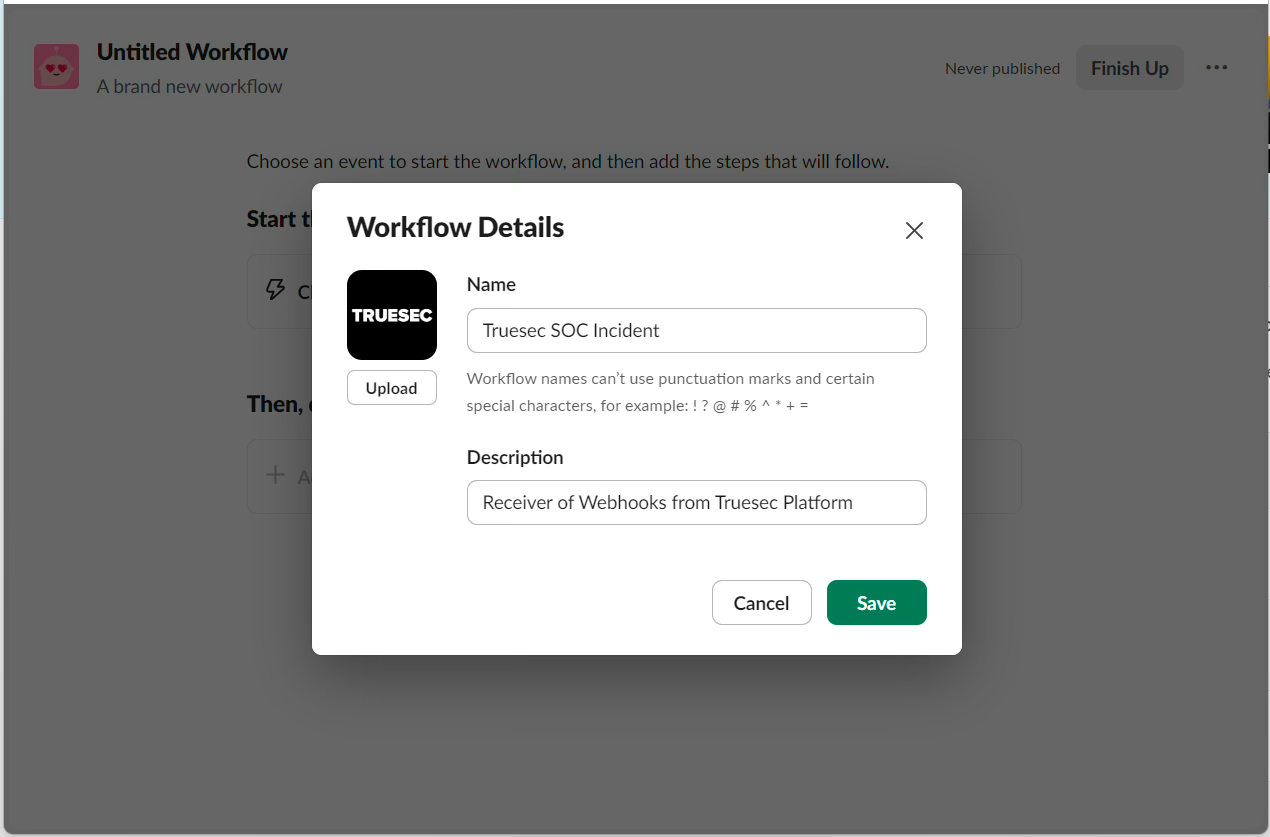
Upload this logo as you create the Workflow:

-
Select the event From a webhook
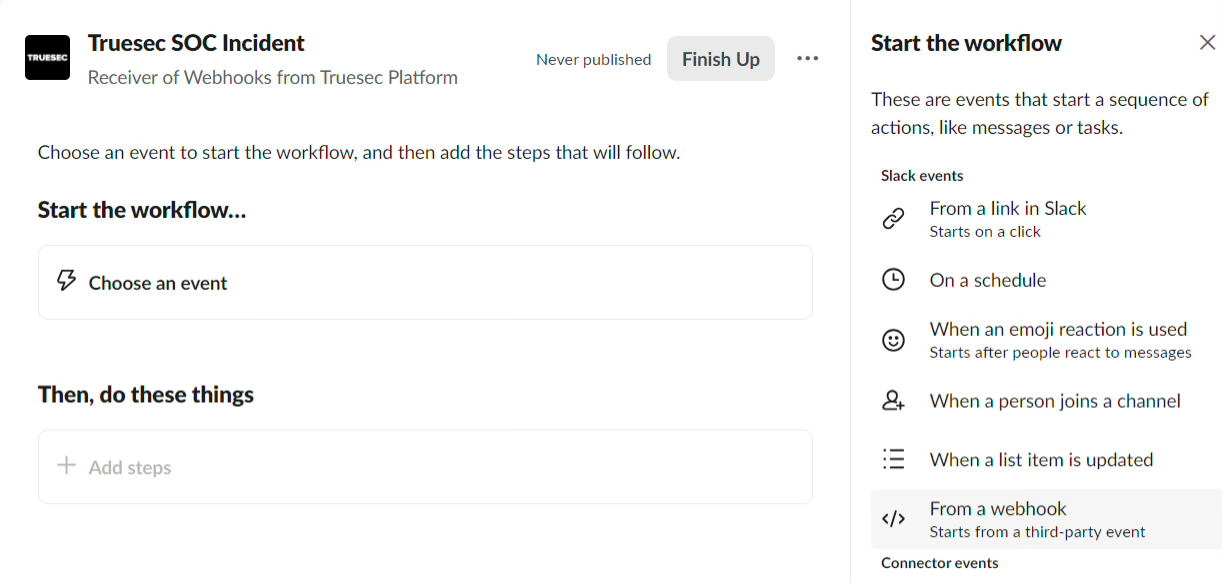
-
In the Choose how to start the workflow step, define all Incident variables to receive. Data Type should be Text. These needs to be added one by one and will be added to the message body in the next step.
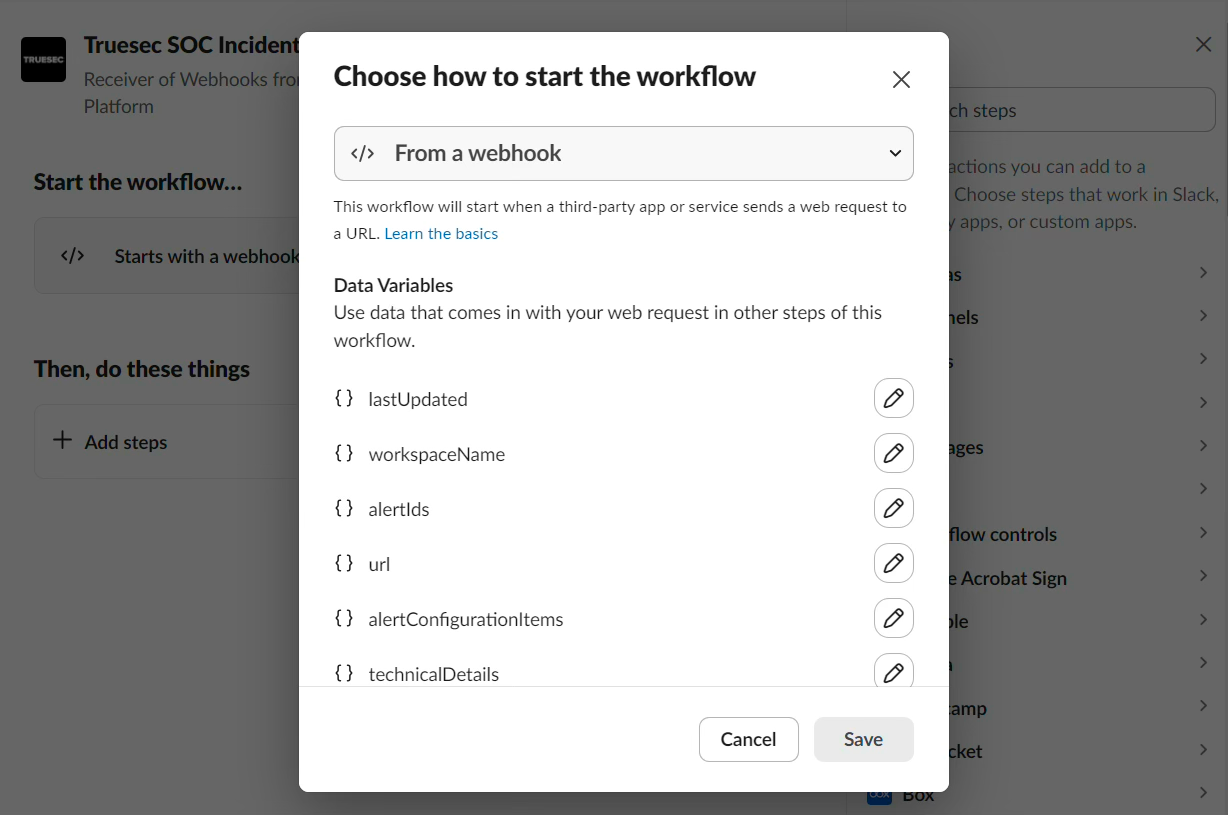
Incidents
Variable Description workspaceName Name of Workspace for incident publication id Incident ID with Workspace prefix url Link to incident in Workspace severity Incident Severity publishedDateTime Publication date of incident subject Incident Subject created Creation date and time of incident lastUpdated Last update of incident summary Incident Summary status Incident Status technicalDetails Incident Technical Details field recommendedAction Incident Recommended Actions field alertConfigurationItems Incident Configuration Items: User(s), Host(s), .. alertIds Truesec related alert ID tags Truesec tag(s) of incident & related alerts sourceUrls Link(s) to source platform alert
-
Continue and in the next Step, add Send a message to a channel under the Messages category
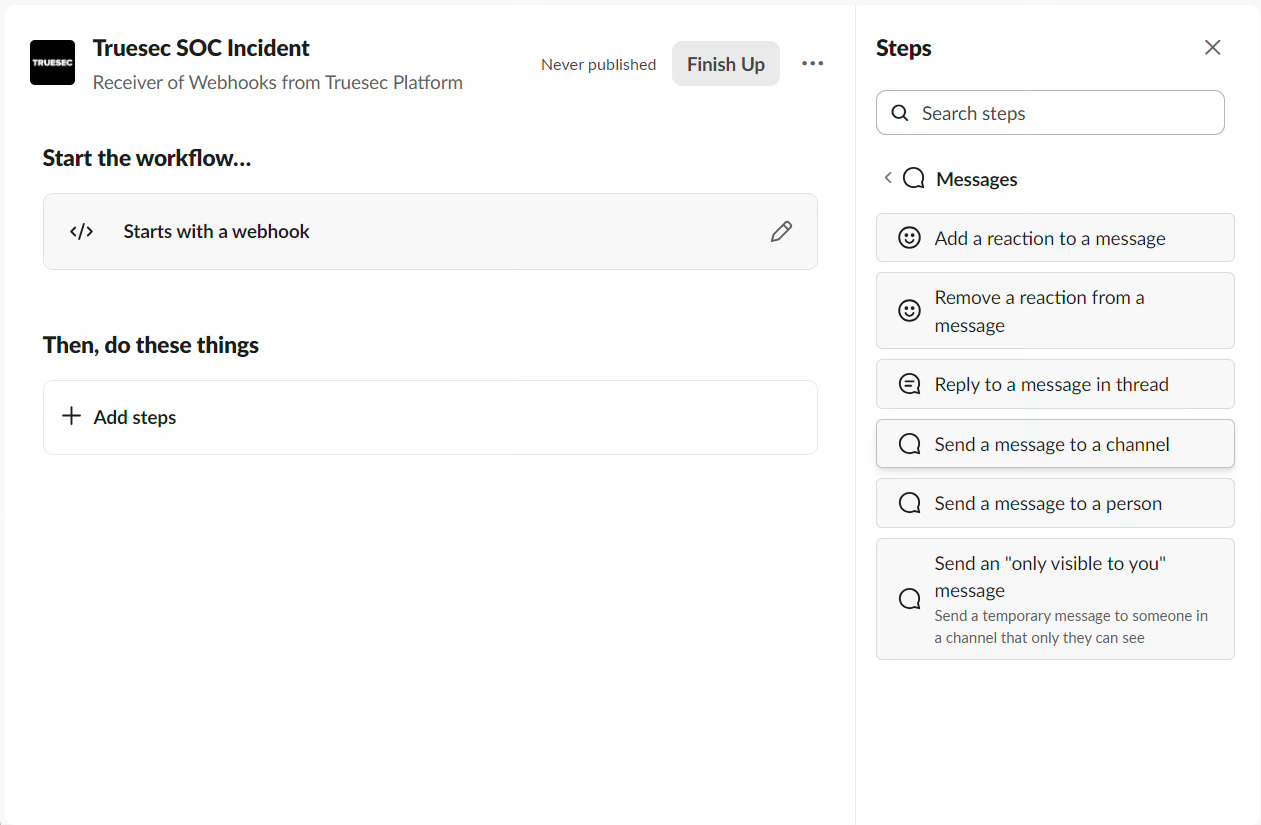
-
Select your receiving channel and paste the below Truesec template for the Slack message in its entirety. Replace the placeholders with the variables defined in the previous step, via
{ } Insert a variable.This ensures the Incidents are presented in Slack with full details. You may change the message and variables as required.
Incidents
:small_orange_diamond:New Incident
[Replace with{ }workspaceName / [Replace with{ }id]
[Replace with{ }subject]Severity
[Replace with{ }severity]Configuration Items
[Replace with{ }alertConfigurationItems]Summary
[Replace with{ }summary]Technical Details
[Replace with{ }technicalDetails]Recommended Action
[Replace with{ }recommendedAction]Alert source
[Replace with{ }sourceURLs]The incident needs to be resolved in the Truesec Portal with closure note to ensure full alignment with Truesec SOC. If you have any questions or need help with this incident, contact the SOC or your Technical Account Manager. Call the SOC at +46 (0) 8 10 00 77.
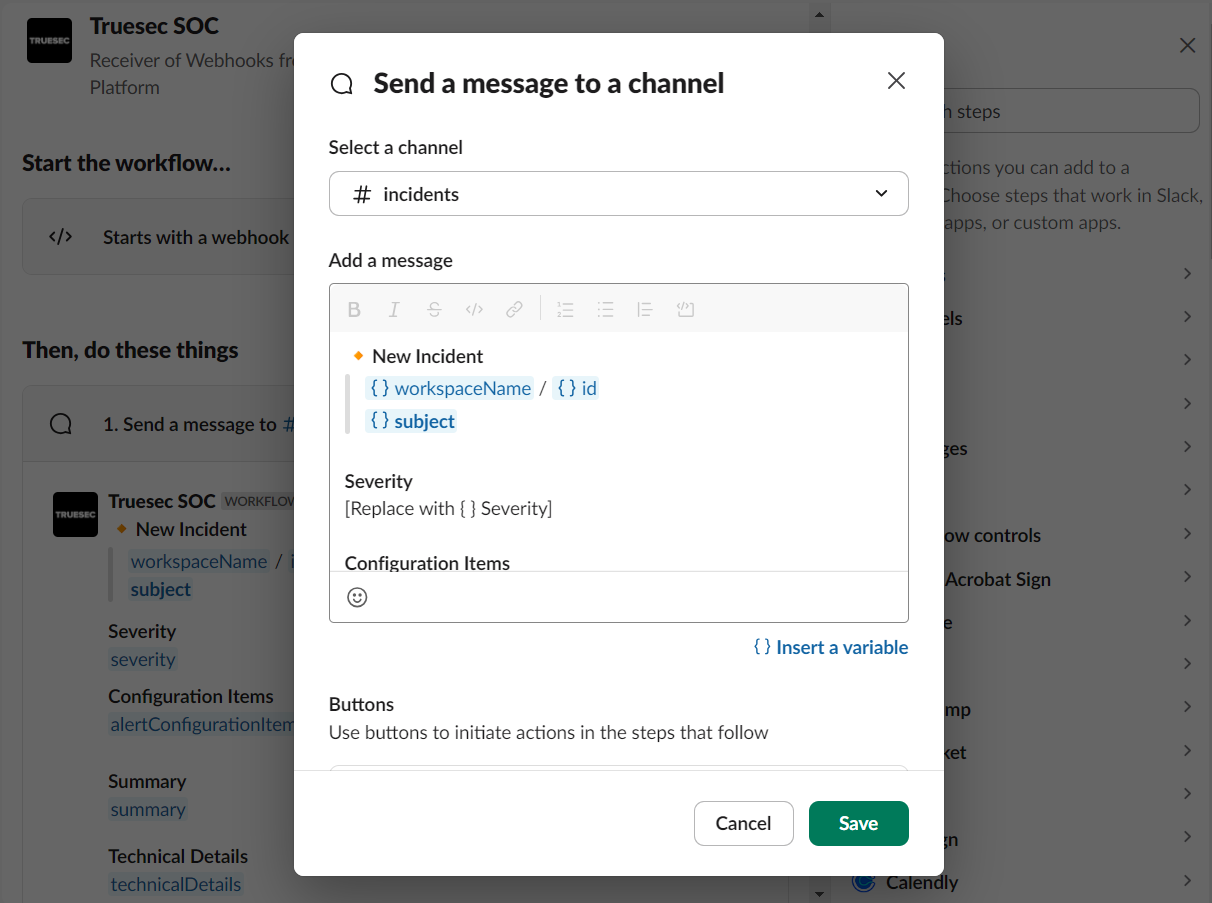
-
Define two buttons at the end of the message to facilitate incident management for your team. Select Open Link as the behavior first.
Button label: Go to Truesec Portal
Select color greenBehavior: Open link
Select the URL variable via{}
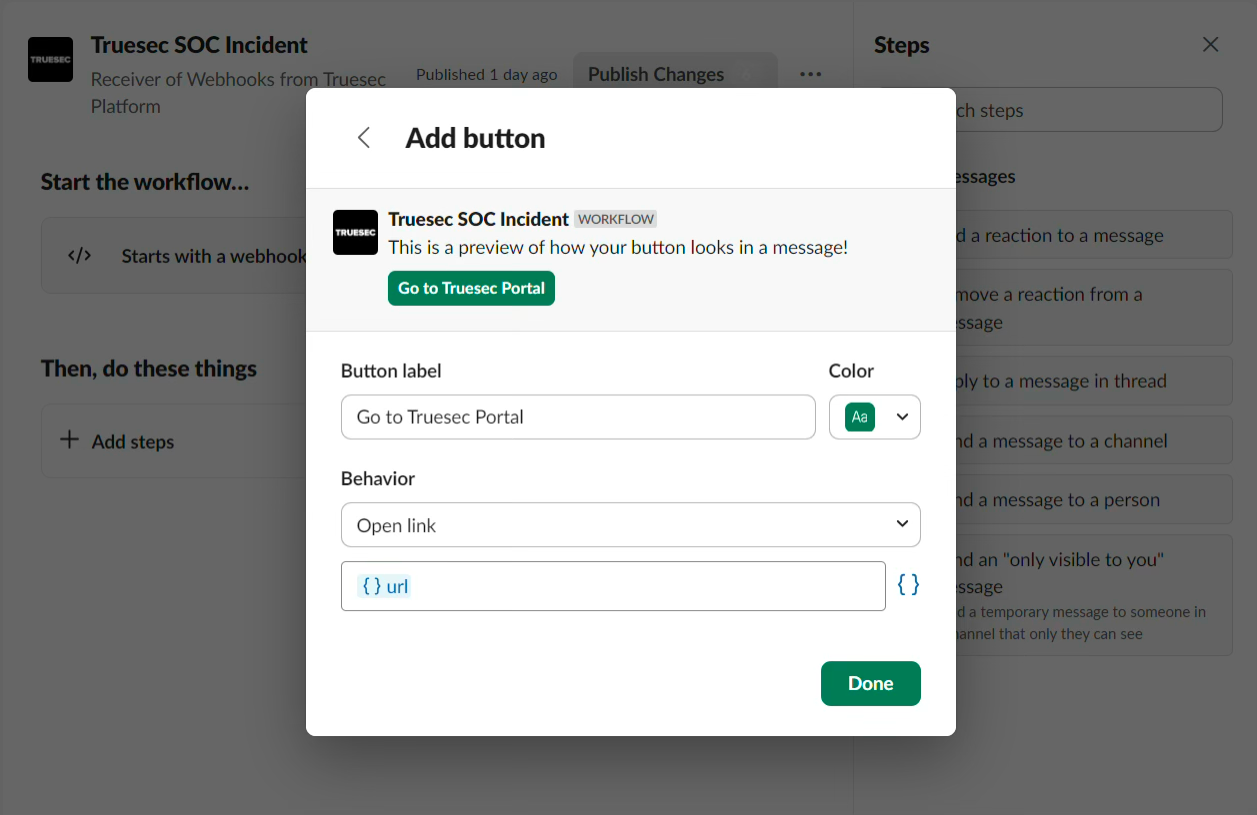
Button label: E-mail Truesec SOC
Select color whiteBehavior: Open link
mailto:support@truesec.com -
Review your workflow steps and select Finish Up to review the complete workflow and permissions. Publish your workflow.
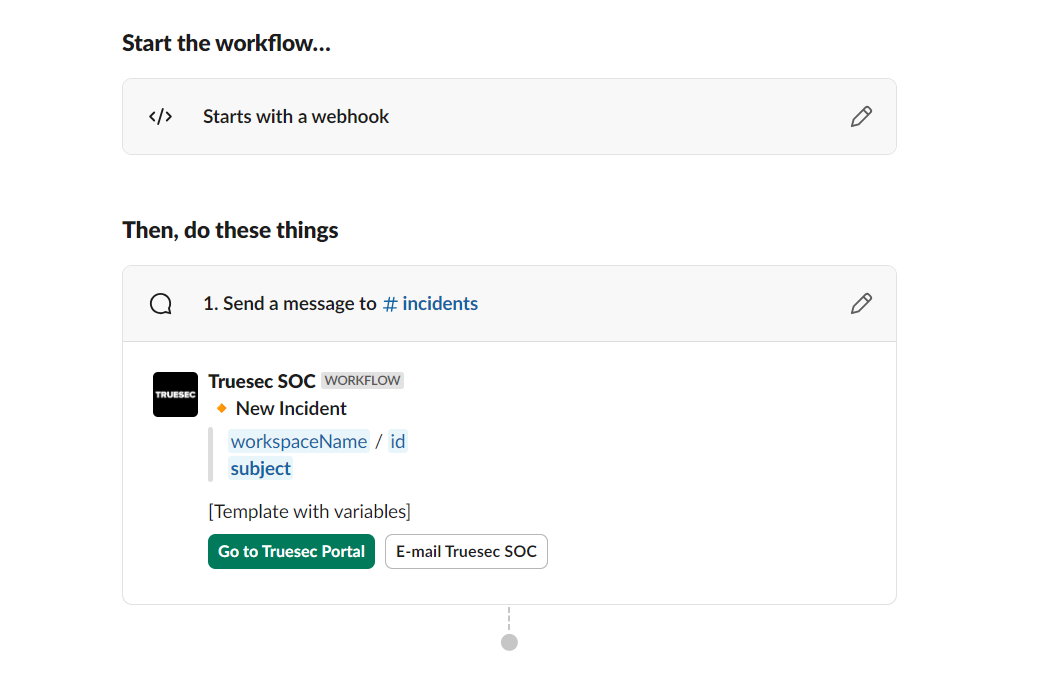
-
You’re all done in Slack.
Find your Web request URL under your workflow start event. You’ll need this to activate the outgoing Webhook in the Truesec Platform, and to test your workflow from the Workspace.
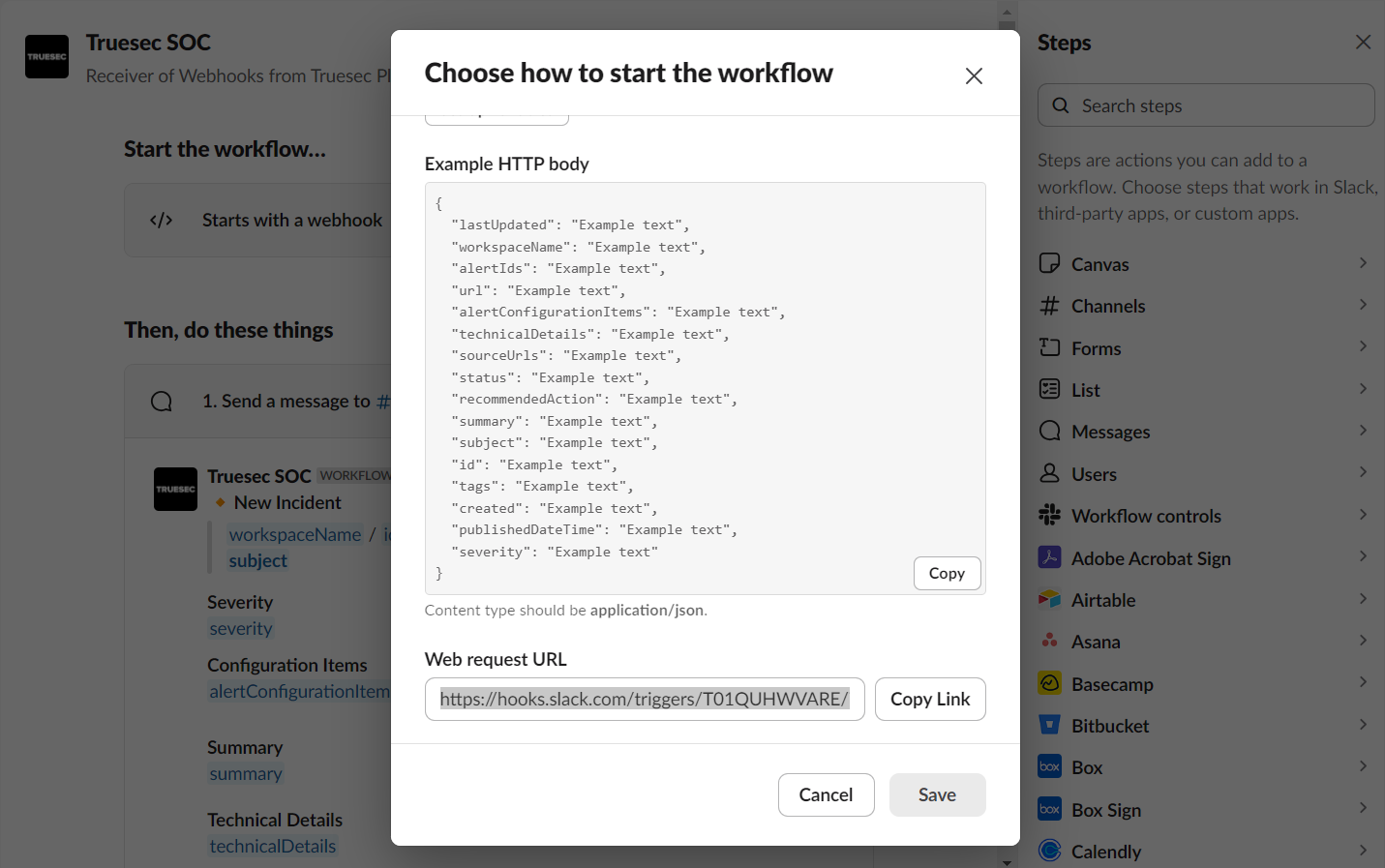
Next step is to configure your outgoing webhook